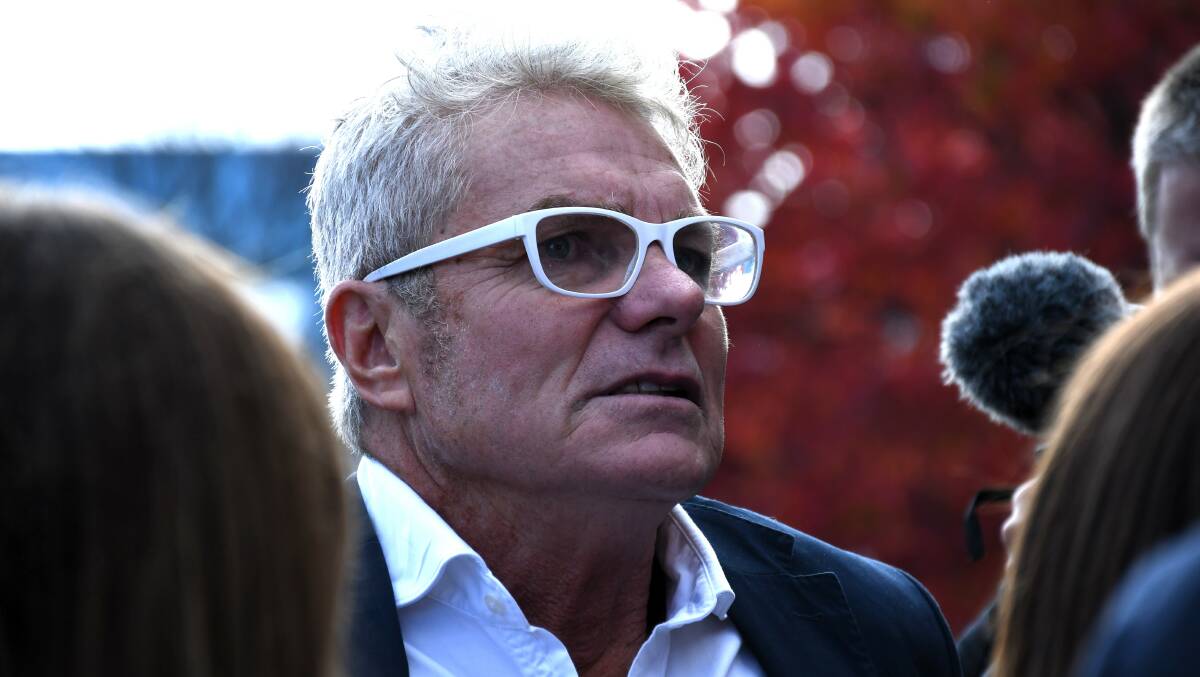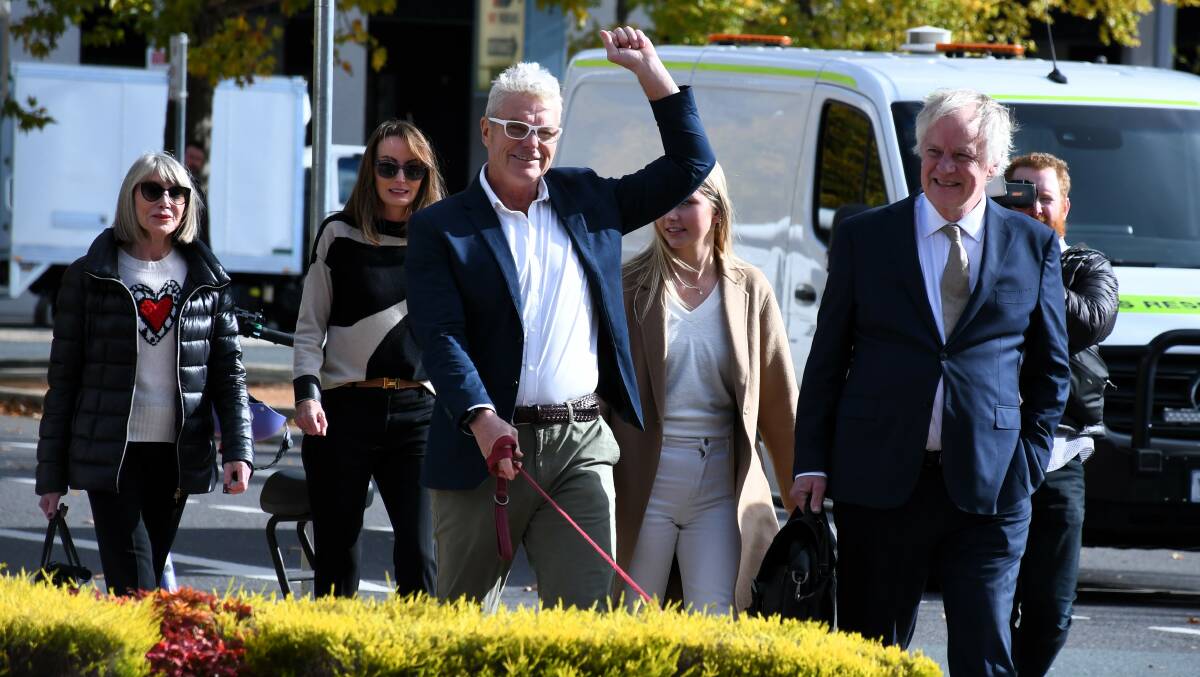David McBride's theft of 207 classified documents, which he then leaked to journalists, has been labelled "dangerous" with a prosecutor claiming it "may lead to hesitation in providing other material to Australia".
In the ACT Supreme Court on Monday, commonwealth prosecutor Trish McDonald said a secret document, not present in the courtroom but locked in the judge's safe, evidenced "harm in an operational manner".
However, counsel for the former military lawyer argued McBride was "honourable" and had sought to expose what he saw as "improper investigations" of special forces troops in "cynical window dressing".
McBride previously pleaded guilty to three charges relating to the theft and disclosure to journalists of classified documents, which detailed alleged misconduct by Australian troops in Afghanistan.
In the packed courtroom on Monday, where there was hardly a free seat in the public gallery, lawyers for both sides made their case.
In the public gallery mobile phones rang, dinged - despite instructions to keep devices on silent - and one person ripped a panel off a wall in order to plug in a charger.
The documents McBride leaked to journalists led to an inquiry that uncovered credible information of 23 incidents of potential war crimes, which involved the killing of 39 Afghans and cruel treatment of two more between 2005 and 2016.
The report found 25 soldiers were perpetrators or accessories - some on a single occasion and some on multiple.

'Cynical window dressing'
Lawyer for McBride, Stephen Odgers SC, argued for the court to make five inferences or additional facts relating to his client's conduct.
Firstly, Mr Odgers said that prior to the crimes, during the crimes, and to this day, McBride was a person of good character and had "an unusual adherence to the highest ethical standards of ... honesty and justice".
The lawyer also argued that McBride's motivation was "honourable".
"He honestly believed there was misconduct in the Australian Defence Force in respect to investigations of special forces soldiers in 2013," Mr Odgers said.
"These improper investigations, in his view, were being used by senior officers as cynical window dressing ... no matter the harm caused to soldiers who had done absolutely nothing wrong."
The court heard McBride had lodged an internal complaint with the defence force in 2014, with Mr Odgers arguing his client first started to make copies of classified documents in relation to this.
However, McBride went to the press before this investigation was finalised having "concluded it would be negative and that's what combined with his emotional state led him to do what he did," the lawyer argued.
Mr Odgers told the court that ABC reporting by Dan Oakes in 2017, which exposed potential war crimes, was not what McBride had intended when leaking the documents.
"The thrust of that article was the opposite of what he intended," Mr Odgers said.

'Knew risk of imprisonment'
Thirdly, Mr Odgers claimed McBride "honestly believed at the time he committed all this conduct that he ... was not committing a criminal offence".
"He knew he was breaching orders, he also knew what he was doing exposed himself to prosecution and the risk of imprisonment ... [but believed a court would find] he acted in the public interest."
In an interview with police, McBride said: "I always thought I was going to be vindicated at some point ... that someone would say, 'you've done well here, you've stuck to your guns and you've exposed corruption'."
Mental health diagnoses
Mr Odgers also argued McBride suffered from a series of mental health conditions, predominantly post traumatic stress disorder which "attributed materially to his offending".
McBride was medically discharged from the Australian Defence Force in 2017 due to his PTSD, which developed during his deployment in Afghanistan.
The defence barrister also argued that while the leaked documents were highly sensitive and their disclosure could cause significant harm to Australia, this risk was low.
Mr Odgers said that while the documents were kept in tubs at McBride's home, there was no evidence anyone accessed them, and he had shared files with reputable journalists.
'Dangerous due to sensitivity'
The Commonwealth prosecutor argued McBride's motivation in stealing 235 documents in total, 207 of these being classified, was unclear.
Ms McDonald said multiple documents before the court revealed McBride's varied concerns including that the ADF was "pandering to politicians", and using government funds "to attract and progress women through the defence force".
The prosecutor argued none of these concerns constituted criminal conduct, which would have been "obvious" to McBride who spent time as a NSW criminal barrister.
Ms McDonald said McBride's actions, in photocopying classified documents, putting them in a backpack and taking them from work was "contrary to considerable training he had received".
"The offending was dangerous due to the sensitivity of the material disclosed," she told the court.
"[There are] assertions ... we had to tell our allies about the disclosure that may lead to hesitation in providing other material to Australia.
"Because of the very nature of the documents, they are sensitive military information ... [there are] also documents which contained cabinet communications."
Justice David Mossop is set to hand down his sentence next week.

